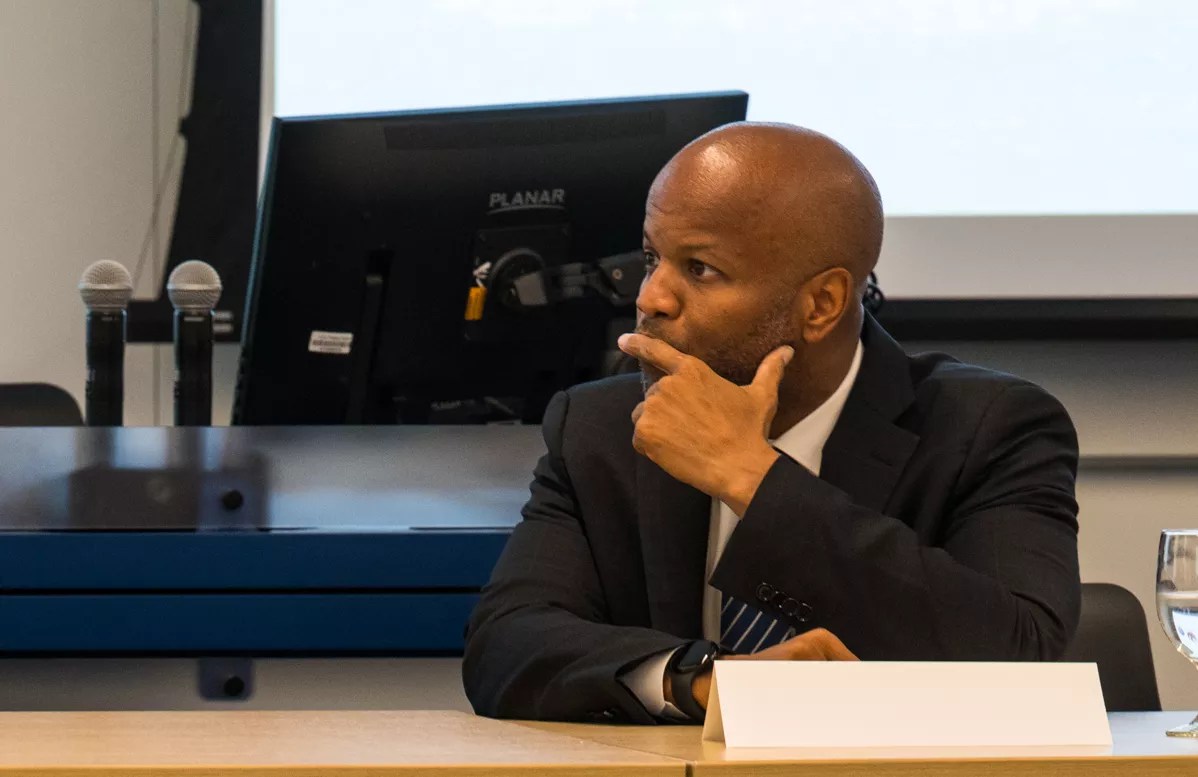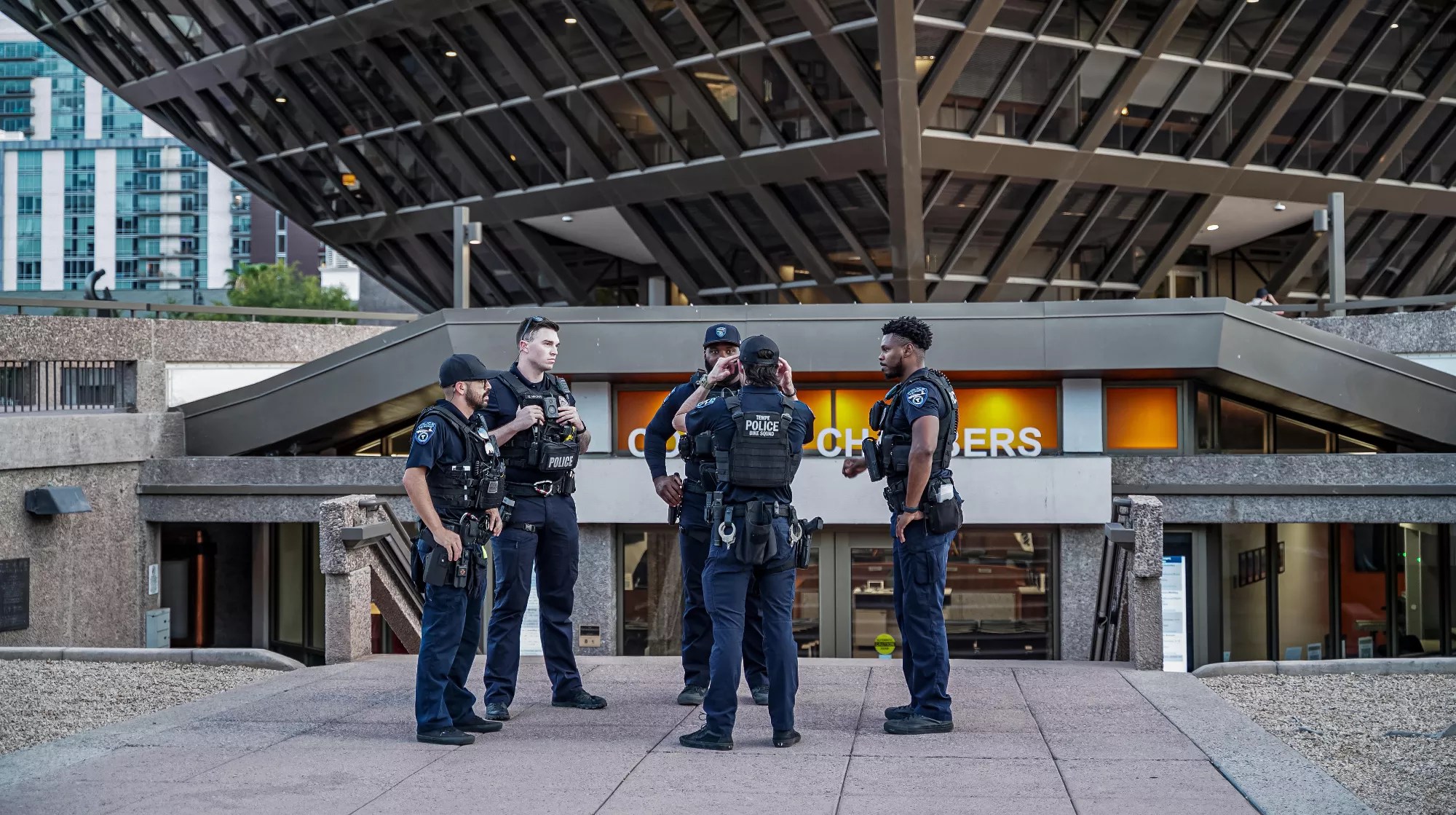
U.S. Department of Labor/Flickr/CC BY 2.0

Audio By Carbonatix
Political pressure still works in Tempe, it seems.
Two months ago, the Tempe City Council unanimously passed a controversial new city parks ordinance in the face of vociferous opposition, with community groups decrying the ordinance as an attempt to crack down on mutual aid groups that help unhoused people in city parks. The vote sparked a referendum campaign to repeal the new ordinance, which gathered nearly 4,000 signatures to put the measure on the ballot for the city’s March elections.
The city council was set to hold a ceremonial vote to approve the ballot measure. Instead, in a virtual meeting on Tuesday, the council admitted defeat, voting to repeal the new ordinance before it ever took effect. The vote was again unanimous, though Councilmember Randy Keating was absent.
Tempe Mayor Corey Woods said the city would go back to the drawing board to craft a new parks ordinance, this time with more community input. Woods and the seven-member council were criticized for rushing the now-repealed ordinance into passage without much public participation.
“I really do think that it would give everyone a voice on this issue that is obviously of enormous importance and it would most importantly create a better ordinance,” Woods said at the meeting.
The council originally passed the ordinance on July 1. Mutual aid groups saw it as the latest salvo against them by the city, which has cracked down on their activities to help the homeless in city parks. The city has cited and arrested community activists for holding unpermitted events – under the original special events ordinance, which is now again on the books – though it has backed off in recent months. Notably, three advocates for the homeless filed a First Amendment lawsuit against the city over its enforcement actions.
Woods previously claimed to Phoenix New Times that the lawsuit prompted the city’s rapid effort to change city code. Critics claimed the new ordinance invested too much power in city staffers to approve or deny events in city parks and feared it could be used to limit freedom of assembly. The city claimed the ordinance was necessary to keep parks safe and clean for everyone to use.
Late last month, however, the advocates suing the city dropped their lawsuit while the repeal effort played out. Days later, a city council meeting agenda included an item about reconsidering the new ordinance. Eric Anderson, Tempe’s city attorney, noted during the meeting on Tuesday that the lawsuit motivated the city to change the law quickly.
“It kind of gave us a position where, because of the status of the litigation at that time, we felt from the legal perspective that was the best procedure, and we couldn’t necessarily do some of the public outreach that the council would normally have done,” Anderson said.

Tempe police congregate outside the Tempe Municipal Building after an Aug. 28 city council meeting was canceled due to safety concerns. The meeting was later held virtually on Sept. 2.
Eli Milchman
Starting over
Without the suit, Woods said, there’s little harm in going back to the drawing board.
“Now, without the threat of litigation, we have the opportunity to take the time necessary to have important conversations about what we as a community want for our parks, for our events, and for our city as a whole,” Woods said.
Before the vote, Tempe residents and other members of the public said they would celebrate such a decision.
“Ordinances that target good Samaritans are not evidence-based answers to addressing the root causes of homelessness,” Bobby Nichols, a candidate running for Tempe City Council and the author of the referendum petition, told the council. “When you are all ready to have a conversation about what an ordinance that meets the needs of the community looks like, my door is open.”
Mandy Everett, an organizer who gathered petition signatures, recalled when councilmembers said they believed the majority of residents supported the new ordinance when they passed it.
“The circles you’re spending your time in might be donor circles,” Everett said. “I don’t really feel like you took the time to hear from your residents. So, we wound up doing it for you.”
Dillon Wild, the co-chair of the Phoenix chapter of the Democratic Socialists of America, said he would support the repeal of the ordinance and “would interpret such an action as a sign of good faith.” He added that he hoped the council would include residents in conversations to draft a new ordinance that “protects freedom of speech, assembly and the ability to provide aid in public spaces.”
Woods indicated that the city’s Neighborhood Services Office would create a public engagement plan to have conversations with residents. How long that process will take isn’t clear. It’s also not clear how Tempe will enforce its old special events and parks ordinance in the interim.
The council was initially set to vote on the repeal petition at a meeting on Aug. 28, but it was canceled due to unspecified “security concerns.” The investigation into those concerns remains ongoing, Tempe Assistant Chief of Police James Sweig explained during the meeting. Sweig did not provide specific details besides noting that a threat was made on social media and that “we determined it to be credible.”
Sweig said that the department is conducting a review of security protocols at the Tempe Municipal Building. Until that is completed, Tempe police have recommended that all city council meetings be held virtually.